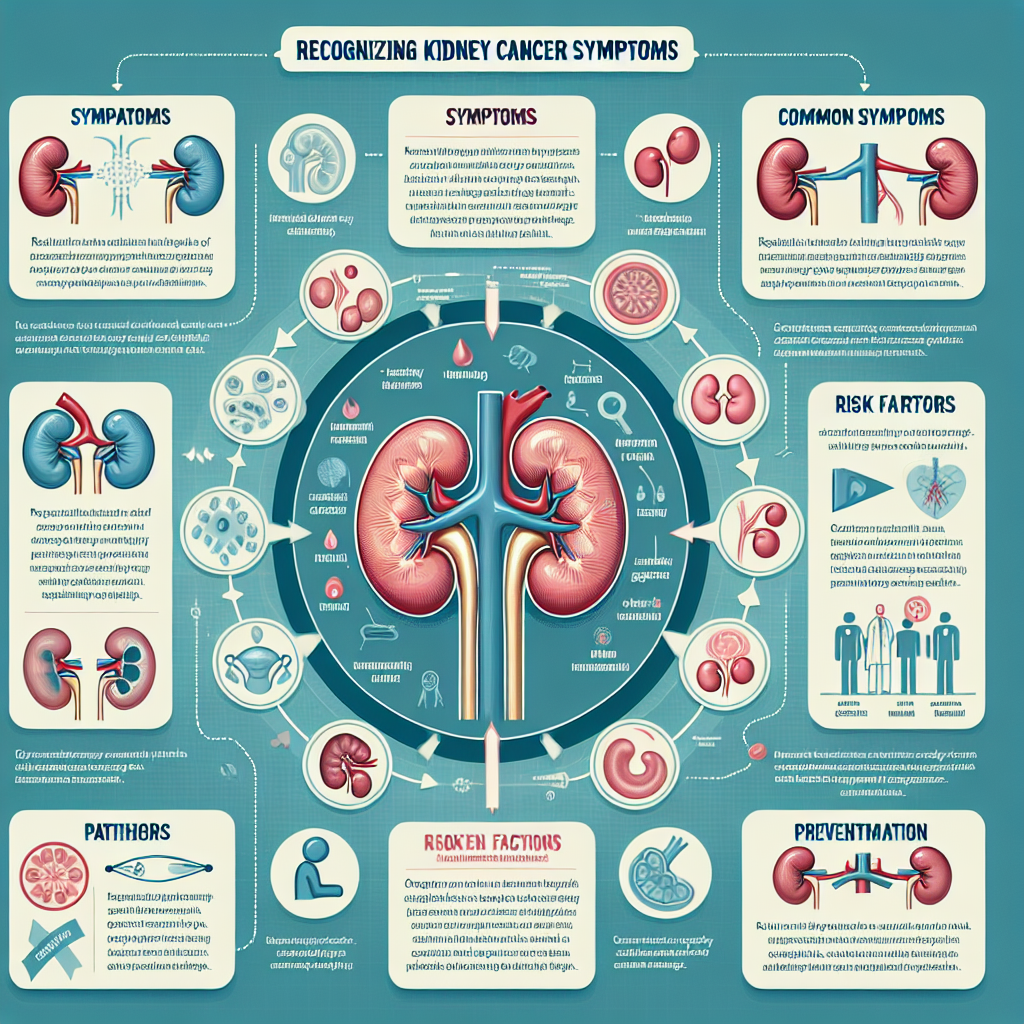===INTRO:===
Kidney cancer is a silent adversary, often lurking without clear warning signs, making it crucial to recognize its symptoms early. Understanding kidney cancer symptoms can empower individuals to seek timely medical intervention, potentially saving lives. This comprehensive guide delves deep into the early signs and influential risk factors, aiming to equip readers with the knowledge necessary to take proactive steps toward their health.
Understanding the Early Signs of Kidney Cancer Symptoms
The elusive nature of kidney cancer symptoms can lead to a dangerous delay in diagnosis. Early indications often mirror those of other, less severe conditions, making it imperative to stay vigilant. Common early symptoms include unexplained weight loss, persistent fatigue, and a noticeable decrease in appetite. These signs may not immediately signal kidney cancer but warrant further investigation, especially for those at higher risk.
Blood in the urine, or hematuria, is one of the most alarming early symptoms and should never be overlooked. This symptom can range from a faint pink hue to bright red coloration, often accompanied by other warning signs such as back pain or abdominal discomfort. When blood appears in urine, it serves as a critical red flag, demanding immediate medical attention to rule out kidney cancer or other serious conditions.
Understanding these symptoms is only half the battle; knowing when to seek medical advice is equally essential. If you experience any combination of these signs consistently, it’s advisable to consult a healthcare professional who can conduct the necessary tests. Early detection significantly improves treatment outcomes, making awareness of these symptoms crucial for your health journey.
Key Indicators and Risk Factors for Kidney Cancer Awareness
Beyond the early symptoms, being aware of key indicators can enhance your understanding of kidney cancer and its potential risks. Certain demographic factors predispose individuals to a higher likelihood of developing this condition. Notably, age is a significant factor, as the risk increases sharply for individuals over 50. Additionally, men are more likely than women to develop kidney cancer, highlighting the importance of gender-specific awareness in screening practices.
Lifestyle choices also play an integral role in the development of kidney cancer. Smoking, obesity, and high blood pressure are among the most significant risk factors. Smoking alone has been shown to increase the risk of kidney cancer by as much as 50%. Furthermore, individuals with a family history of kidney cancer or certain genetic conditions, such as von Hippel-Lindau disease, must remain particularly vigilant, as hereditary factors can significantly heighten risk.
Incorporating regular health check-ups and maintaining a healthy lifestyle can serve as powerful deterrents against kidney cancer. Keeping track of your health metrics, such as blood pressure and weight, and making informed dietary choices are essential steps in reducing risk. Early intervention through routine screenings can often catch abnormalities before they escalate, ultimately fostering a proactive approach to kidney health.
===OUTRO:===
Recognizing the symptoms of kidney cancer and understanding the associated risk factors is an empowering journey towards better health. Awareness breeds action, and by keeping an eye out for early warning signs and adopting healthier lifestyle choices, you can take charge of your kidney health. Don’t wait for symptoms to escalate; if you notice anything unusual, consult a healthcare professional promptly. Stay informed, stay proactive, and prioritize your well-being—because every step counts in the fight against kidney cancer.
Exploring the Impact of 40,000 Daily Steps on Weight LossEffective Yoga Poses for Optimal Weight Loss and WellnessComprehensive Reviews of Happy Mammoth Weight Loss ProgramRelevant LinkRelevant LinkRelevant Link




